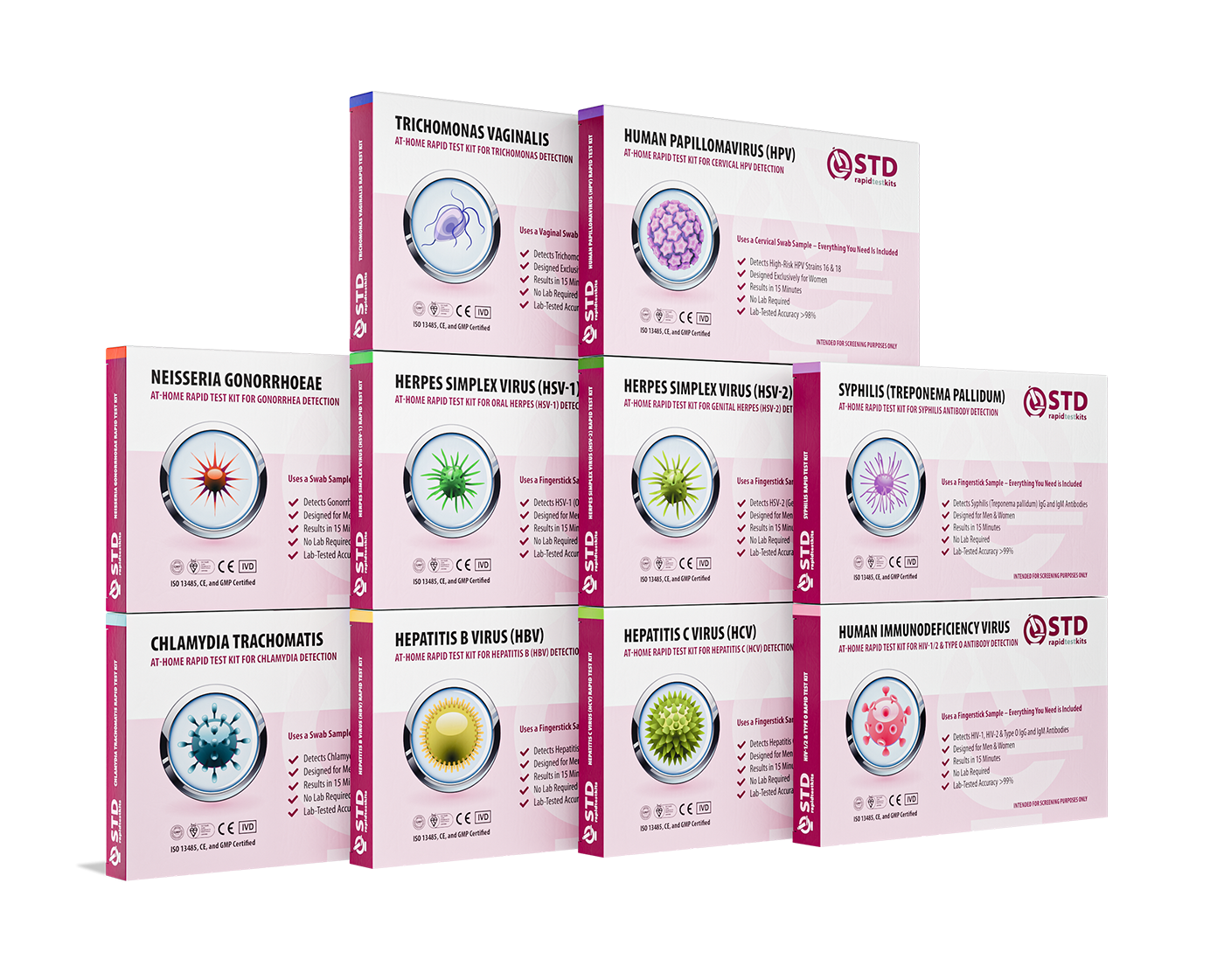Quick Answer: Casual sex via a “friends with benefits” (FWB) arrangement may feel low-stakes, but the reality is this: even when protection is used, the dynamics of FWB, unspoken agreements, multiple partners, ambiguous boundaries, create fertile ground for sexually transmitted diseases (STDs) to slip through. To stay safe, empowered, and free of shame, you need to know how risk grows in these situations, be able to spot early signs, and set up a testing and communication routine.
What Makes FWB a Hidden STD Risk Zone?
It’s not just about the number of people you sleep with, it’s the silence. People in FWB relationships don't often talk about sexual health, past partners, or when they plan to get tested. There’s a cultural assumption that “because we’re not serious, it’s not serious.” That logic becomes a trap.
Take Darius, 29. He was seeing two women casually. One was a friend from college who joked about “always being clean.” They never discussed testing. When he developed a painless sore on his penis, he panicked. The diagnosis was syphilis. Neither woman had shown symptoms. Neither had tested recently. Both were stunned, and hurt, when he told them.
FWB often lacks the emotional scaffolding of committed relationships. No defined check-ins. No agreed-upon boundaries. And because everything is “chill,” questions like “When was your last test?” feel awkward or even intrusive. But that silence doesn’t protect anyone, it increases exposure.
“But We Used Protection”, Why That’s Not Always Enough
Condoms are critical, but they’re not foolproof. Several STDs, including herpes, HPV, and syphilis, can spread through skin-to-skin contact in areas not covered by condoms. And that’s before we get into condom failure or inconsistent use (which is more common in casual hookups than most people admit).
One 2022 study in the Journal of Adolescent Health found that only 58% of young adults reported consistent condom use in their most recent FWB encounter. Another 12% admitted they “got caught in the moment” and didn’t use one at all. The result? A false sense of safety that creates very real consequences.
| STD | Can Condoms Prevent? | Other Transmission Routes |
|---|---|---|
| Chlamydia | For the most part, if used right | Touching genitals with fingers and having oral sex |
| HPV | Partially | Skin-to-skin near genitals |
| Herpes (HSV) | Partially | Skin-to-skin, kissing, oral |
| Syphilis | Partially | Skin-to-skin, sores on lips, mouth, genitals |
| Gonorrhea | Mostly | Throat and rectal exposure during oral/anal sex |
Table 1: Even with condom use, certain STDs can slip through due to skin contact or oral exposure. This is especially important in FWB setups where partners might not test often.

People are also reading: Trichomoniasis in Men vs Women: Symptoms You Might Miss
FWB and Testing: Why No One Brings It Up (But Should)
Imagine two people naked in bed, laughing, the tension gone. That’s the moment people say, “This isn’t serious.” It’s also the exact moment when an invisible infection could transfer from one body to another. And yet, no one talks about testing.
Why? Because asking “Have you been tested?” implies risk, mistrust, or seriousness. In an FWB setup built on being low-pressure and emotionally neutral, that can feel like breaking the rules. But what’s really being broken is the chain of safety.
Rayna, 23, found out she had trichomoniasis after a routine test during a pap smear. She hadn’t noticed symptoms. She’d been sleeping with a close friend for six months. “I was humiliated,” she said. “Not because of the STD, but because I never asked. We were friends. I assumed I’d know if he had something.”
FWB creates this illusion of safety: “I know them.” But unless you’ve seen their results, or gotten tested together, you don’t. And that’s not paranoia. That’s self-respect.
Check Your STD Status in Minutes
Test at Home with Remedium7-in-1 STD Test Kit

 For Men & Women
For Men & Women Results in Minutes
Results in Minutes No Lab Needed
No Lab Needed Private & Discreet
Private & DiscreetOrder Now $129.00 $343.00
For all 7 tests
How STDs Can Stay Silent (And Why That’s a Problem)
Many people assume they’re “clean” because they feel fine. But some of the most common STDs, chlamydia, HPV, gonorrhea, can remain asymptomatic for weeks, months, or indefinitely. In an FWB arrangement, where testing isn’t routine and communication is murky, that silence becomes dangerous.
Chlamydia is a prime example. Around 70% of women and 50% of men show no symptoms after infection. HPV often clears on its own, but some strains can cause cancer if undetected. And herpes? Many people who carry HSV-2 have no idea until they pass it on. They chalk up itching or a bump to shaving irritation. Then someone else ends up with a full-blown outbreak and no clear explanation.
Here’s what that looks like: Jay, 33, developed red bumps on his penis two weeks after sleeping with a friend he’d hooked up with twice before. “She told me she hadn’t been with anyone in months,” he said. “But she didn’t mention she gets cold sores.” His diagnosis: genital herpes caused by HSV-1. Oral-to-genital transmission is now a leading cause of genital HSV in adults under 40. You can get it even if no visible sore is present.
| STD | Percent Asymptomatic | Common Misinterpreted Signs |
|---|---|---|
| Chlamydia | ~70% women, ~50% men | Mild burning, light discharge, mistaken for UTI |
| HPV | Most cases | No symptoms, or warts mistaken for skin tags |
| Gonorrhea | ~50% women, ~10% men | Spotting, sore throat, mild rectal pain |
| Herpes (HSV-1/2) | Up to 90% initially | Itching, pimples, rash after shaving |
| Trichomoniasis | ~70% of infections | No symptoms, or unusual discharge, odor |
Table 2: STDs often present without clear or alarming symptoms, which is why many people in FWB arrangements delay testing, or never test at all.
Testing Timelines for FWB: What Actually Makes Sense?
So, how often should you test if you’re sleeping with a friend, once, occasionally, or regularly?
The CDC recommends that all sexually active individuals with multiple partners test for chlamydia and gonorrhea at least once a year. But if you have more than one FWB, or your partners also have other partners, that window should shrink.
Think of testing like dental cleanings, routine, not dramatic. Here’s a simple rule: every 3 to 6 months if you’re active with multiple partners, even if symptoms are absent. If you had unprotected sex or symptoms show up, test immediately and again after the incubation window.
That’s where STD Rapid Test Kits come in. You don’t need to wait for a clinic appointment or worry about someone overhearing in a waiting room. Tests are discreet, FDA-approved, and arrive in plain packaging.
Feeling unsure about your timeline? This Combo STD Home Test Kit screens for the most common infections and gives results in minutes.
Case Story: “It Was Just a Hookup, But It Changed Everything”
Marisol, 26, had known Ben since high school. After reconnecting on Instagram, they started hooking up every few weeks. “It felt easy,” she said. “There were no expectations, no drama.” But after an intense burning sensation during urination, she went to urgent care. The test came back positive for gonorrhea.
“He swore he used condoms with everyone. I believed him. But no one had tested in months,” she said. “It wasn’t even the STD that wrecked me, it was realizing I didn’t advocate for myself.”
FWB often feels safe because of familiarity. But the reality is, the very lack of formality is what makes regular testing and boundary-setting even more essential. You can’t rely on someone else’s behavior or assumptions to protect you. You only control your own plan.
How to Bring Up Testing Without Killing the Vibe
Here’s the part no one teaches you: how to talk about testing without making it weird. The trick? Drop the performance. Don’t apologize. Don’t overexplain. Just say it like you’d say, “Have you eaten today?”
Mira, 31, frames it like this: “Hey, just FYI, I test every three months, especially if I’m seeing more than one person. Want to do it together?” Simple. Disarming. Respectful.
Or you can use the moment before sex to normalize it. “I brought condoms, and I’ve tested recently. How about you?” If they flinch or dodge, that tells you something more important than their last result, it tells you how they handle responsibility.
FWB doesn’t mean rules don’t apply. It means the rules are yours to define. And if someone won’t respect that, it’s not a vibe, it’s a warning.
Testing Positive Doesn’t Mean You Messed Up
It happens. To the careful. To the educated. To the people who “never thought it would be me.” A positive result is not a moral failure, it’s a sign to act, not to spiral.
Gabriel, 27, tested positive for chlamydia after getting symptoms two weeks post-hookup. “I wanted to ghost her. I felt dirty,” he admitted. “But I talked to a friend who reminded me, this is just like strep. It’s treatable. You’re not broken.”
And it’s true. Most bacterial STDs are cured with a round of antibiotics. Viral ones like herpes or HPV can be managed and don’t define your future. What matters most is what you do next: notify partners, avoid sex until cleared, and retest after treatment if needed.
This combo test kit can also be used for follow-ups to ensure the infection is gone. Peace of mind is part of the healing process.
You Deserve Boundaries, Even in “Casual”
Being in an FWB setup doesn’t mean you give up your right to safety or clarity. You can enjoy connection, pleasure, and freedom without sacrificing your health. That includes saying:
“I don’t have unprotected sex without seeing recent test results.” “I’d like to talk about who else we’re seeing.” “I care about my health, that’s not a big ask.”
If they balk? They’re not casual, they’re careless.
Testing isn’t about catching someone. It’s about protecting yourself and anyone else involved. Normalize the check-in. Treat it like part of the hookup ritual. Light a candle, pour the wine, and show each other the receipts. It’s modern. It’s hot. It’s grown-up.
Need to start that process today? Order your discreet home test kit here.

People are also reading: What Is Hepatitis B? A Comprehensive Guide to Symptoms, Causes, and Prevention
FWB Doesn't Mean “Whatever Happens, Happens”
When people say “it’s just sex,” what they often mean is “I don’t want to get hurt.” But that mindset can lead to a dangerous kind of silence. Silence about testing. About feelings. About what happens if something goes wrong.
Callie, 22, was sleeping with her ex. No drama, they said. Just fun. She assumed he was clean because they had dated before. After all, she’d never had an STD. But three months in, she started spotting between periods and noticed pelvic pain. Her doctor diagnosed her with chlamydia. She had no idea how long she’d had it, and was too embarrassed to tell her ex, who had already moved on.
“I didn’t even know what to say,” she told us. “We weren’t serious. Was it even my place?” That’s the trap: when there’s no label, we sometimes forget we still have the right to clarity. To ask. To inform. To protect. That’s not drama. That’s care.
Check Your STD Status in Minutes
Test at Home with Remedium10-in-1 STD Test Kit

 For Women
For Women Results in Minutes
Results in Minutes No Lab Needed
No Lab Needed Private & Discreet
Private & DiscreetOrder Now $189.00 $490.00
For all 10 tests
Sex Without Shame, Testing Without Guilt
Let’s be blunt: people have sex outside of relationships. Sometimes a lot of it. Sometimes with friends. Sometimes with strangers. That doesn’t make them reckless, dirty, or dangerous. It makes them human.
But we’ve built this cultural narrative that testing is only for people who “do too much”, and that’s deadly. Testing is health care. Like brushing your teeth or checking your blood pressure. It’s not a confession. It’s a basic, brilliant way to show yourself love.
If you’ve ever felt judged for asking about status, or scared to bring up your own results, or guilty because you didn’t test sooner, you’re not alone. But here’s the truth: the more we normalize these conversations, the less power shame has over any of us.
So here’s your permission slip: get tested, even if you’re not “sure.” Ask your FWB when they last checked. Share your own status without flinching. And if something comes back positive, deal with it like you would a cold or a sprained ankle, with care, not self-hate.
Order a discreet combo test kit here, fast, private, and made for real life, not judgment.
One Last Thought: You’re Not Overreacting
If your gut says something’s off, or if you’re just wondering, “Should I test?”, trust that instinct. You’re not paranoid. You’re not overthinking. You’re being responsible. Whether you’ve had sex once, twice, or fifty times with someone, your body and your peace of mind matter.
FWB might feel casual. But STDs aren’t. And asking the right questions, about status, protection, testing, isn’t intense. It’s intelligent. Let’s stop treating silence like safety and start building hookups on honesty, autonomy, and good sex that comes with better boundaries.
FAQs
1. Can someone give me an STD even if they feel totally fine?
100% yes. That’s actually how most STDs spread, when no one feels a thing. Chlamydia, gonorrhea, and even herpes can be silent passengers. Your FWB might genuinely think they’re “clean” because nothing itches or burns. That doesn’t mean they’re in the clear.
2. We used condoms, so why did I still test positive?
Condoms are protection, not perfection. They work best for infections spread through fluids (like HIV or chlamydia). But skin-to-skin STDs like herpes or HPV? They can sneak through contact that condoms don’t cover. Think thighs, mouths, fingers. It's not failure, it’s biology.
3. Is it overkill to ask my FWB to test?
Not even close. Honestly, it’s one of the smartest, sexiest things you can do. It shows you care, about yourself and them. Try: “Hey, I like where this is going. Wanna test together?” If they flinch, it’s not the vibe you think it is.
4. What if I already hooked up and I’m only thinking about this now?
You’re not alone. Most people wait until after something feels off, or until they read something like this. Good news: it’s not too late. You can test now, get peace of mind, and make a plan moving forward. That’s progress, not punishment.
5. Can I get tested without anyone finding out?
Absolutely. At-home test kits are discreet, reliable, and don't come with judgment. They arrive in plain packaging and take minutes to use. No clinic, no explaining yourself to anyone behind a desk.
6. What if my FWB ghosted and now I have symptoms? Oof, been there. That sucks, emotionally and physically. First, take care of yourself. Test. Treat if needed. And remember: their silence doesn’t define your worth. You’re doing the right thing by handling it head-on.
7. I tested positive. Am I stuck with this forever?
Depends on what it is. Bacterial STDs like gonorrhea, chlamydia, and trichomoniasis? Gone with meds. Viral ones like herpes or HPV? They stick around, but you can manage them, and still have an amazing sex life. Diagnosis isn’t destiny.
8. How soon can I test after a hookup?
It varies by STD. Some show up in tests after 5–7 days (like chlamydia); others take a few weeks. The sweet spot is usually around 2–3 weeks for most accurate results. If you test early, plan a retest later. One and done doesn’t always cut it.
9. Will I know who gave it to me?
Probably not, and that’s a mindfk. Unless you’ve only been with one person recently, it’s tough to trace. What matters most is not blame, it’s breaking the chain. Test, treat, and talk to past partners if you can.
10. What if I’m scared to know the result?
Totally normal. But not knowing doesn’t protect you, it just postpones the reality. Testing isn’t just about diagnosis. It’s about control, clarity, and peace of mind. And honestly? Most people feel way better after doing it, no matter what the result is.
You Deserve Answers, Not Assumptions
Casual doesn’t mean careless. Just because there are no labels doesn’t mean there shouldn’t be protection, emotional and physical. You deserve clarity, comfort, and health, no matter what you call the relationship.
If something feels off, or even if you just want peace of mind, testing is the most powerful move you can make. This at-home combo test kit checks for the most common STDs discreetly and quickly.
How We Sourced This Article: We combined current guidance from leading medical organizations with peer-reviewed research and lived-experience reporting to make this guide practical, compassionate, and accurate.
Sources
1. Sexual Risk Behavior and STIs
2. About Sexually Transmitted Infections | CDC
3. Sexually Transmitted Infections | WHO
4. Sexually Transmitted Infections Surveillance | CDC
5. Sexually Transmitted Infections (STIs) | HHS
6. HIV and Sexually Transmitted Infections (STIs) | NIH
7. Sexually Transmitted Infections – Healthy People 2030 | ODPHP
About the Author
Dr. F. David, MD is a board-certified infectious disease specialist focused on STI prevention, diagnosis, and treatment. He blends clinical precision with a no-nonsense, sex-positive approach and is committed to expanding access for readers in both urban and off-grid settings.
Reviewed by: Emily Chen, MPH | Last medically reviewed: November 2025
This article is for informational purposes and does not replace medical advice.










